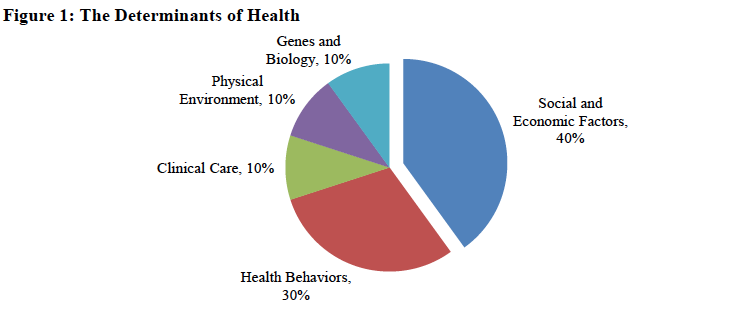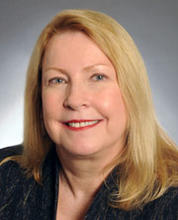“Public policy is a nursing intervention.” So says Minnesota State Senator, health committee chair and nurse educator, Kathy Sheran. Ninety percent of health outcomes are affected by factors outside of clinical care (see Figure 1). So it comes as no surprise that nursing, the largest and most omnipresent health profession, which also enjoys unparalleled political capital with the highest public trust, influences and increasingly creates public policy to reduce social impediments to individual and population health. The Densford Center’s Policy Dialogue Series creates a regular forum for Essential Conversations that illuminate how key policy topics might inform nursing interventions and impact professional practice.

MN Dept. of Health (2014). Advancing health equity: A report to the legislature.
Previous dialogues
Chris Eaton

"Is this How to Die in Minnesota?"
Tuesday, September 29, 2015
11:30 a.m. - 1 p.m.
University of Minnesota, School of Nursing
Weaver-Densford Hall Bentson Center 4th Floor
Special Guest: Minnesota State Senator Chris Eaton, RN
Thank you to those that joined the conversation with leading Senator Chris Eaton, RN and her legislation about care when we complete our lives. We appreciate the conversation and have recorded the Policy Dialogue.
Medical Cannabis
Medical Cannabis: Implications for Providers

Special Guest: Tom Arneson, Research Manager, Office of Medical Cannabis, Minnesota Department of Health
The Minnesota Department of Health released information in May, 2015 regarding the amended medical cannabis statute in Minnesota which addresses patients' use of medical cannabis in hospitals and other health care facilities (source: Minnesota Department of Health)
What are the implications for current and future nurses and the Health Care Community? What changes can nurses and other health care providers expect when treating patients? What protections are available for nurses and health care providers under this new legislation?
Tom Arneson, Research Manager at the Office of Medical Cannabis, Minnesota Department of Health will address these questions and lead a discussion on Minnesota Medical Cannabis Policy.
Power of the Apology
The Power of Apology After Medical Error
When: Thursday April 25, 2015 12 p.m. - 1 p.m.
Where: 4th Floor, Weaver-Densford Hall Bentson Healthy Communities Innovation Center UMN
Cost: Free
Guest Speakers: Mark R. Kosieradzki, BS, JD KOSIERADZKI SMITH LAW FIRM, LLC Plaintiff's Attorney & Stephen O. Plunkett BS, JD BASSFORD REMELE Defense Attorney
Topic: In spite of all best efforts in health care to promote safety and quality, unanticipated adverse outcomes happen. In the past a “deny and defend” stance created adversarial relationships between and among providers, patients and their loved ones. Transparency and apology have been shown to mitigate patients’ and families’ emotional and litigious responses to medical error. The manner in which patients, families and providers handle responses to unanticipated adverse outcomes is influenced by the power of sincere apology.
As a result of this Policy Dialogue, participants will be able to:
- Discuss what motivates patients and their loved ones to seek legal counsel after unanticipated adverse outcomes in health care.
- Discuss three main principles related to the power of apology following medical errors.
- Explain four elements of sincere apology.
Policy Dialogue HIPAA
HIPAA 2.0: What's New
April 21, 11:45am - 1:15pm
Bentson Healthy Communities Innovation Center
School of Nursing: Weaver Densford Hall 4-130
308 Harvard St. SE, Minneapolis, MN 55455
According to the MN Nurses Association, 40-50% of disciplinary actions against hospital nurses are related to HIPAA.
Alessandra Swanson, JD from the Office of Civil Rights, Chicago, IL will lead a discussion on HIPAA 2.0: What's New. The discussion will include the latest rulings, a review on sanctions and best practices to avoid sanctions.